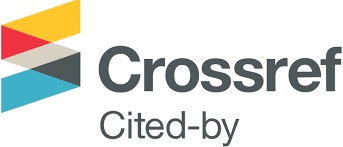Emerging Minds Journal awards for 2023 -2024 academic year
Congratulations to our winners:
Marinos Ioannou - The Most Read Article Award
Megan Rose Lawie - The Best Article Award
When reporting on research that involves human subjects, human material, human tissues, or human data, authors must declare that the investigations were carried out following the rules of the Declaration of Helsinki of 1975 (https://www.wma.net/what-we-do/medical-ethics/declaration-of-helsinki/), revised in 2013. According to point 23 of this declaration, an approval from the local institutional review board (IRB) or other appropriate ethics committee must be obtained before undertaking the research to confirm the study meets national and international guidelines. As a minimum, a submission cover letter should contain a statement including the project identification code, date of approval, and name of the ethics committee or institutional review board must be stated in Section ‘Institutional Review Board Statement’ of the article.
For non-interventional studies (e.g. surveys, questionnaires, social media research), all participants must be fully informed if the anonymity is assured, why the research is being conducted, how their data will be used and if there are any risks associated. As with all research involving humans, ethical approval from an appropriate ethics committee must be obtained prior to conducting the study. If ethical approval is not required, authors must either provide an exemption from the ethics committee or are encouraged to cite the local or national legislation that indicates ethics approval is not required for this type of study. Where a study has been granted exemption, the name of the ethics committee which provided this should be stated in Section ‘Institutional Review Board Statement’ with a full explanation regarding why ethical approval was not required.
If the study reports research involving vulnerable groups, an additional check may be performed. The submitted manuscript will be scrutinized by the editorial office and upon request, documentary evidence (blank consent forms and any related discussion documents from the ethics board) must be supplied. Additionally, when studies describe groups by race, ethnicity, gender, disability, disease, etc., explanation regarding why such categorization was needed must be clearly stated in the article.
If national legislation requires it, studies involving vertebrates or higher invertebrates must only be carried out after obtaining approval from the appropriate ethics committee. As a minimum, the project identification code, date of approval and name of the ethics committee or institutional review board should be stated in Section ‘Institutional Review Board Statement’. Research procedures must be carried out in accordance with national and institutional regulations. Statements on animal welfare should confirm that the study complied with all relevant legislation. Clinical studies involving animals and interventions outside of routine care require ethics committee oversight as per the American Veterinary Medical Association. If the study involved client-owned animals, informed client consent must be obtained and certified in the manuscript report of the research. Owners must be fully informed if there are any risks associated with the procedures and that the research will be published. If available, a high standard of veterinary care must be provided. Authors are responsible for correctness of the statements provided in the manuscript.
If ethical approval is not required by national laws, authors must provide an exemption from the ethics committee, if one is available. Where a study has been granted exemption, the name of the ethics committee that provided this should be stated in Section ‘Institutional Review Board Statement’ with a full explanation on why the ethical approval was not required.
If no animal ethics committee is available to review applications, authors should be aware that the ethics of their research will be evaluated by reviewers and editors. Authors should provide a statement justifying the work from an ethical perspective, using the same utilitarian framework that is used by ethics committees. Authors may be asked to provide this even if they have received ethical approval.
Experimental research on plants (either cultivated or wild) including collection of plant material, must comply with institutional, national, or international guidelines. We recommend that authors comply with the Convention on Biological Diversity and the Convention on the Trade in Endangered Species of Wild Fauna and Flora.
For each submitted manuscript supporting genetic information and origin must be provided.
Editors reserve the rights to reject any submission that does not meet these requirements.

ISSN 2976 - 9094


Congratulations to our winners:
Marinos Ioannou - The Most Read Article Award
Megan Rose Lawie - The Best Article Award
 |
 |
 |
 |
 |
 |
The journal is licensed under a Attribution International (CC BY).
Copyright © IPI Publishing - Information Physics Institute
This site uses cookies. By continuing to use this site you agree to our use of cookies.
